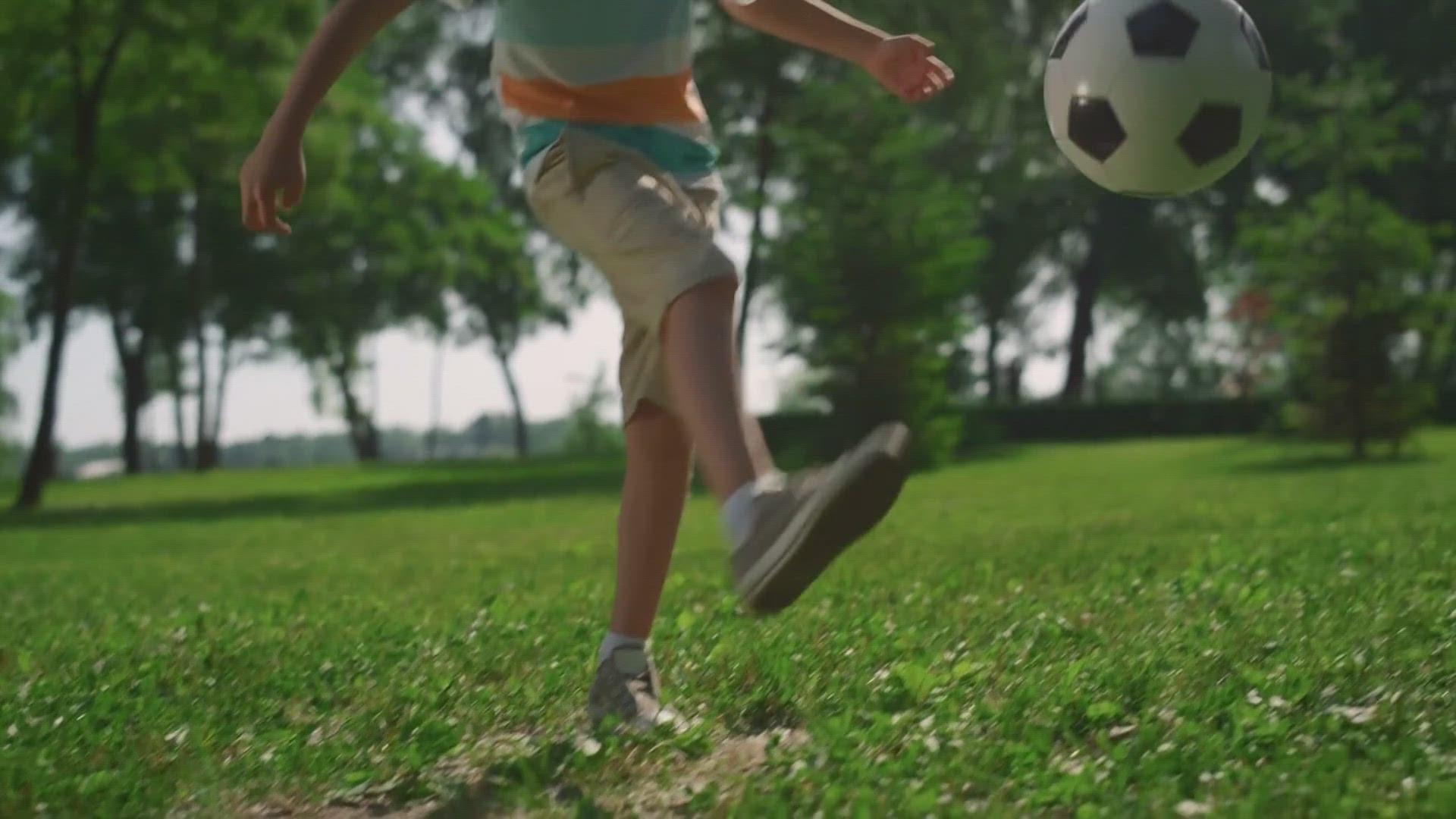SAN ANTONIO — We may be used to these blistering temperatures, but many kids may not because they've spent much of the summer inside away from the heat. Whether it is a sports activity, band, or any activity outside, adults need to pay attention to children, because they don't often recognize the signs of dehydration or heat illness in themselves.
"It's important to understand that that child getting out there the first time to that heat for prolonged periods of time can affect the body in different ways," said Dr. Mandie Tibball-Svatek who is a pediatric hospitalist with University Health and Associate Professor with UT Health San Antonio. She says a child with an underlying medical condition could change their heat tolerance.
"For example, a child that has ADHD that's on certain medications, may have excessive sweating, may not be able to tolerate tolerate the heat as much," Dr. Tibball-Svatek added.
Signs of a serious medical emergency include changes in mental status. Lack of sweating. Dry, flushed skin. Staggering. And loss of consciousness.
"That's when individuals should be calling 911, when that skin is really dry, when they're altered, that child is very confused. You need to get them to a safe place, a cooler place, and then call for help," Dr. Tibball-Svatek told us.
Keeping kids hydrated is key to keeping them safe. When a child is doing any kind of outdoor activity in the heat, If they are aged nine to 12 they need to drink three to eight ounces of water every 20 minutes. If they are above the age of 12 the amount of water nearly doubles to 12 to 16 ounces every 20 minutes. That's about three to four 12 ounce bottles of water an hour.
"Different children produce different amounts of sweat, and they need to replace that. And water is the best replenishment for that," Dr. Tibball-Svatek added.
Dr. Tibball-Svatek also says whenever the temperatures are as extreme as they've been, taking breaks from any outdoor activity every 20 minutes is a must.
Find out more from University Health about keeping kids safe in the heat while playing sports here.
For more from University Health about heatstroke prevention head here.
For more information from the CDC about athletes and being safe in the heat click here.
For more information about family health call 210-358-3045. You can also find the rest of Wear The Gown stories, just go to WearTheGown.com.

